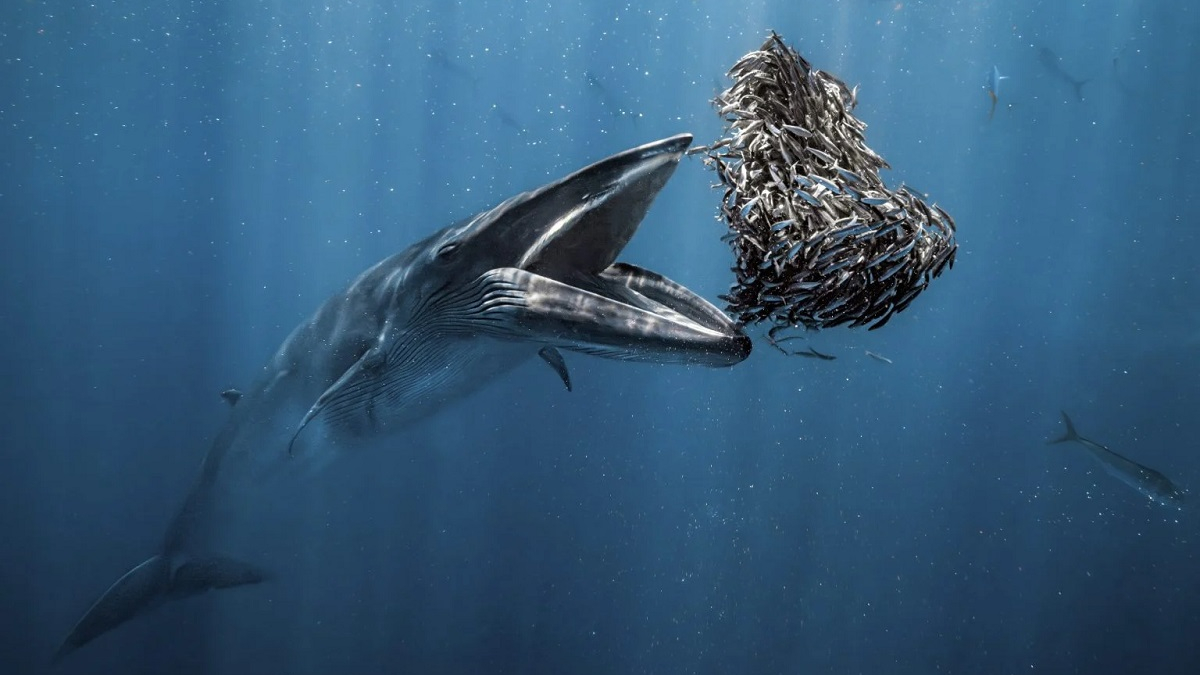
Nature photography award winning photos can be stunning or deeply moving in all kinds of ways, but some stand out exceptionally.
One recent winner of first place in the 2024 Ocean Photographer Of The Year awards is a notable example. His shot of a Bryde’s whale snacking on a school of fish is one of the best I’ve ever seen of a whale feeding under the waves.
Rafael Fernandez Caballero captured his shot in the warm, deeply transparent waters off the coast of Baja California Sur, a Mexican state along the northern Pacific coast of Mexico and it particularly captures the captivatingly alien majesty below our seas.
The judges at the 2024 Ocean Photographer Of The Year Prize agreed with this sentiment since they chose his photo from among 15,000 other submissions, of which many come from some of the world’s best ocean photographers alive today.
According to Caballero, reflecting on his shot, “The image captures perhaps the most special – and craziest – moment of my life. It fills me with joy having lived this moment – and to have captured the image.”
He also added that being named Ocean Photographer Of The Year is a dream come true. More of his work can also be seen on his Instagram page.
The top prize includes £10,000 in cash, the opportunity to join an Ocean Census expedition as a commissioned photographer, and the chance to spend a week diving in South Africa’s kelp forests with a champion freediver.
Winners were selected from among nine different categories. And the other selected entries are worth taking a look at here.
Bryde’s whales represent three different species of rorqual baleen whales and commonly feed in the warm, food-rich waters off western Mexico.
Their range, like that of most baleen whales, is essentially worldwide in all the major oceans. However, unlike some baleen whale species, the Bryde’s whale avoids Arctic and Antarctic water.
These whales, while gigantic at over 15 meters or 50 feet in length and weighing up to 25 tons, are still dwarfed by the very similar looking Blue whale, which reaches just over 100 feet or 30 meters and can weigh up to 120 tons.
Ocean photography is known for being especially difficult simply due to the amount of equipment often required and the nature of the environment in which much of it is captured.
This of course also makes the competition for winning awards just a bit less stiff than it is for something like street photography.
Also, some winning entries in this and previous ocean photo prize competitions have been from photographers working with drone cameras or conventional shooting equipment from shore or ship.
Photo credit: Rafael Fernandez Caballero






